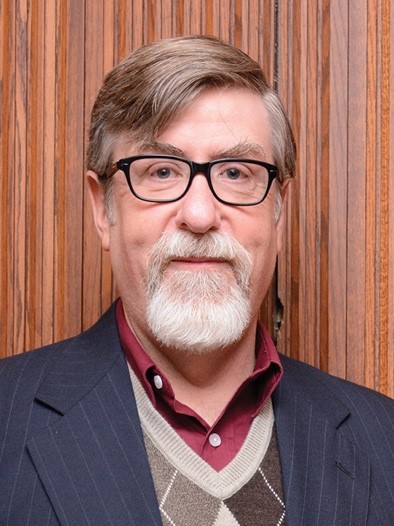 Understanding extremism can be key to our future.
Understanding extremism can be key to our future.
Art Jipson, associate professor of sociology and criminology at the University of Dayton, explores why.
Arthur “Art” Jipson is an associate professor of sociology and criminology at the University of Dayton, where he has taught since 2001. From 2005 to 2016, Jipson was director of UD’s criminal justice studies program. His work has been published in The Conversation, the Journal of Criminal Justice Education, the Journal of the Institute of Justice & International Studies, Research in Political Sociology, The American Sociologist, The Justice Professional, American Journal of Criminal Justice, The International Review of Law, Computers and Technology, and Popular Music and Society. He edited a special issue of Sociological Focus with UD colleague Paul Becker on research on white racial extremism, online extremism, white nationalism and hate crime. His primary research has focused on extremism, radicalization, nationalism, social deviance, Internet culture, and efforts to prevent radicalization through pathways that create a healthy inclusive community. His secondary research has explored roadside memorials and legal regulation of memorials and the popular music industry, popular culture and youth in American society.
Understanding Extremism
Extremism is a belief system that rejects society’s norms and pushes for radical change. It appears in many forms, from social conspiracies like QAnon to far-right groups like the Proud Boys. Extremists often share common traits: intolerance for other views, and a willingness to use violence or coercion to achieve their goals.
White supremacy is a dangerous form of extremism. It promotes the idea that white people are superior to others. It often calls for controlling or eliminating non-white communities. These beliefs can come from social and economic frustrations. People facing job losses or growing inequalities may turn to extremist ideas for identity and belonging.
Digital platforms have made recruitment easier. Many groups use social media to spread their message. These online spaces create echo chambers. They reinforce extremist views and push people toward violence.
My research shows to counter extremism, law enforcement must monitor and respond to threats, but collaboration among local, state and federal agencies is critical. Community organizations also play a key role in fostering resilience by supporting marginalized groups and promoting inclusivity.
Education also is essential. Initiatives that teach the dangers of intolerance and the value of diversity help dismantle extremist narratives.
And legislative efforts, such as stronger hate crime laws, can further protect vulnerable communities.
Fighting extremism requires a collective approach. Through education, community support, and strong enforcement of laws, we can build stronger, more inclusive societies that resist harmful ideologies.
Read More:
LinkedIn: https://www.linkedin.com/in/arthur-jipson-014338a/
Twitter/X: https://x.com/artjipson
Instagram: https://www.instagram.com/drjytaa/
Radio Show: https://yourtuesdayafternoonalternative.com/


Leave a Reply